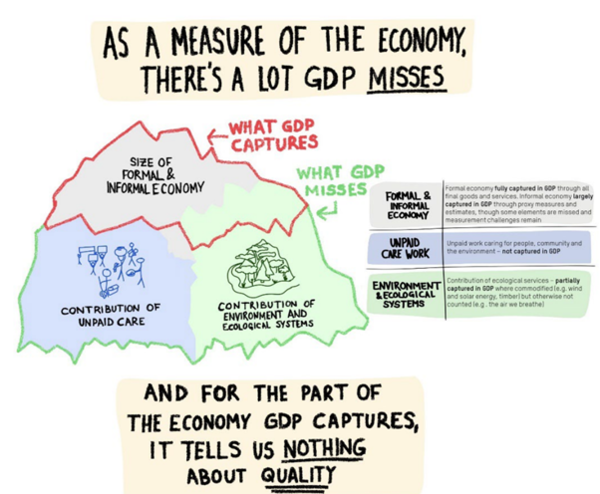
Share Tweet Share Share Email Artificial intelligence (AI) is transforming the financial sector , offering enhanced efficiency and cost reduction. However, its integration raises critical ethical concerns, including bias, transparency, and accountability. This article examines these challenges and explores potential solutions, with insights from expert Puneet Chopra on how to ensure AI’s responsible deployment in financial services.
The Rise of AI in Finance AI has revolutionized financial services, enhancing credit scoring and fraud detection. Its ability to process large amounts of data swiftly has streamlined loan approvals, reduced processing times, and expanded credit access. In fraud detection, AI improves accuracy and efficiency by reducing false positives.

AI also drives algorithmic trading, executing trades faster than human traders, and powers chatbots to handle customer service inquiries, cutting operational costs. However, as AI becomes integral to finance, concerns about fairness, transparency, and accountability emerge. Addressing issues like bias in decision-making and ensuring transparency in AI-driven decisions are essential for responsible, equitable, and transparent AI deployment in finance.
Bias in Financial Decisions: A Growing Concern A significant ethical issue with AI in finance is bias. AI systems can inadvertently perpetuate societal biases since they are only as unbiased as the data they are trained on. For example, AI-driven credit scoring models may disadvantage certain demographic groups, particularly racial minorities, by reflecting biases in historical data.
Studies show that AI-based mortgage approval systems can unfairly reject minority applicants compared to equally qualified white applicants. Similarly, AI-powered risk assessments in insurance may lead to unfair pricing, with some groups facing higher premiums due to biased data. To mitigate these biases, financial institutions must conduct regular AI audits, diversify data sources, and ensure their development teams are diverse.
Implementing fairness constraints, like adversarial debiasing, can help ensure more equitable outcomes. Additionally, human oversight is crucial to review AI decisions, ensuring they are fair, unbiased, and aligned with ethical standards before implementation. Enhancing Transparency in AI Systems The “black box” problem, where AI systems make decisions without clear explanations, poses a major challenge in finance.
Many AI models, especially deep learning algorithms, are difficult to interpret, leading to a lack of transparency. This opacity can erode customer trust, as consumers and regulators struggle to understand decision-making processes. Regulatory frameworks like the EU’s GDPR require explainable AI decisions, but the complexity of many AI models complicates compliance.
Customers also need reassurance that AI-driven decisions, such as loan approvals or insurance claims, are made fairly and based on accurate data. To tackle this, financial institutions are turning to interpretable AI models. Techniques like LIME and SHAP provide insights into model behavior.
Offering customers access to their data and clear, understandable explanations helps build trust and ensures AI decisions are transparent, fair, and grounded in reliable data. Accountability: Defining Responsibility in AI Systems As AI systems take on more autonomy in financial decision-making, determining accountability becomes increasingly difficult. When AI-driven decisions result in financial losses, it is challenging to assign responsibility.
A study by the European Banking Authority found that many banks face difficulties in establishing clear accountability, especially when AI systems operate independently of human oversight. This lack of accountability raises concerns for both institutions and customers. Financial institutions must establish clear accountability frameworks, defining liability for AI decisions.
Assigning responsibility to senior managers ensures proper risk assessment. Additionally, strong governance structures, including multi-layered oversight and regular AI audits, should be implemented. A “human-in-the-loop” approach for critical decisions can prevent errors, and creating mechanisms for appealing AI decisions offers customers recourse if treated unfairly by automated systems.
Moving Toward a Responsible AI Future in Finance As AI continues to shape the future of financial services, it is essential that ethical considerations are at the forefront of its development and deployment. By focusing on mitigating bias, enhancing transparency, and establishing clear accountability, the financial sector can harness the full potential of AI while addressing its ethical implications. In conclusion, Puneet Chopra emphasizes the need for balancing innovation with responsibility.
As AI evolves, regulatory frameworks must adapt accordingly. By adopting robust ethical guidelines, financial institutions can ensure AI enhances efficiency while fostering a fairer, more transparent, and accountable financial ecosystem. Related Items: Financial AI , Innovations , Puneet Chopra Share Tweet Share Share Email Recommended for you What Is Voice AI? A Look at the Latest Tech Innovations Venture Capital Meets the Stars: How to Position Your Startup for Success in Space Funding The Future of the Universe: Investment Trends in Astrophysics You Need to Know Comments.














